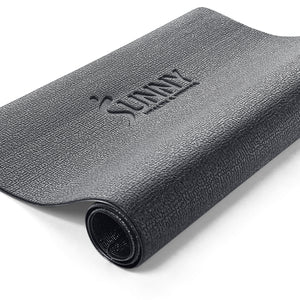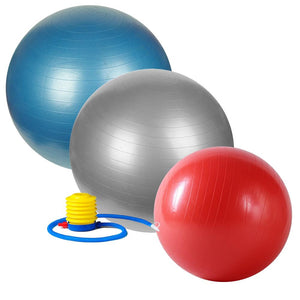Intermittent fasting has recently gained popularity; and, for good reason. Studies suggest that it can have powerful effects on your physical and mental health. In the least, it’s a practice that has helped many people lose weight, gain control of their health, and simplify their lifestyle. But is intermittent fasting right for you? Keep reading to find out!
What is Intermittent Fasting?
Intermittent fasting is all about when you eat rather than what you eat. It involves cycling through set periods of eating and fasting. Most of us intermittent fast to some degree, as we typically go for an extended period of not eating each night when we sleep, and break the fast each morning with our breakfast!
Intermittent fasting typically involves daily fasts. For example, the 16/8 method is the most popular intermittent fasting protocol and involves fasting for 16 hours, and eating all your food within the remaining 8 hour window. This is one of the most common schedules, and easy for beginners to take on, as basically all it would mean is skipping out on any late night snacks, and waiting until lunch to eat your first meal of the day. Of course, there are a variety of schedules and methods to choose from!
Methods of Intermittent Fasting
There are several methods to intermittent fast - all of which involve splitting up the day or week into periods of eating and fasting. During the fasting periods you either eat very little, or nothing at all.
- The 16/8 Method: This protocol involves skipping breakfast and restricting all eating into an 8 hour period, for example 12:00PM - 8:00PM. Then fasting for 16 hours in between.
- Eat-Stop-Eat: This practice would involve fasting for 24 hours a few days of the week, and eating on a regular schedule the rest of the week.
- The 5:2 Method: This method involves eating only 500 calories a day 2 non-consecutive days out of the week, and eating normally the rest of the week.
When practiced correctly, all of these methods should reduce your calorie intake, which can lead to weight loss. That is, as long as you’re not cramming extra calories in during your eating periods.
Health Benefits of Intermittent Fasting
Believe it or not, there is a great deal of research on the benefits of fasting for the human body! Here are just a few:
1. Weight Loss
Studies suggest intermittent fasting can help you lose weight or belly fat without having to consciously restrict calories.
2. Insulin Resistance
Intermittent fasting has been shown to reduce insulin resistance, lowering blood sugar by 3-6% and fasting insulin levels by 20-31% which can protect against type 2 diabetes.
3. Inflammation
Some studies reveal reduced inflammation with intermittent fasting protocol.
4. Heart Health
One study suggests, intermittent fasting may reduce LDL cholesterol, and blood triglyceride levels - both risk factors for heart disease.
Will Intermittent Fasting Affect My Fitness Routine?
Intermittent fasting definitely will affect your fitness routine, but it doesn’t mean you can’t successfully intermittent fast and reach your fitness goals. It’s important to sprinkle in your workouts when you are set up to perform safely and effectively, so you can achieve the best results.
For me, that comes down to two factors - fueling for your workout, and refueling after your workout. Both of these factors will affect your overall performance, and the results you see from your fitness program, so they’re incredibly important. I can easily see these getting lost in the mix, even with a standard 16/8 intermittent fasting schedule. Let’s break these down a bit more.
Fueling Before
For example, let’s say you’re following a 16/8 schedule, and you only eat from 12:00 PM to 8:00 PM, but you like to workout in the morning at 7:30 AM before work. If you’re completing lighter exercise such as walking or yoga, you may not need to fuel up beforehand. However, you should always fuel up before high-performance sessions such as heavy weights, HIIT training, or high effort work to prepare your body to feel and perform it’s best!
Fueling After
Waiting until 12:00 PM to refuel after an early session is much too long. When you wait this long to refuel, your muscles are not getting what they need to recover, and advance - negatively affecting the results of your efforts.
While this is just one example, you can see how important it is to consider how your workout and intermittent fasting fit into the day with one another. To get an idea of how to properly fuel before and after a workout, check out our article on What to Eat Before and After a Workout. Once you know how to set yourself up for success, then you can successfully choose the best time of day to workout, or how to best shift your intermittent fasting schedule.
As long as you can ensure you’re fueling properly, and that your overall caloric intake matches your fitness goals, you should be able to successfully intermittent fast and train with no issues!
Should You Try Intermittent Fasting?
At the end of the day intermittent fasting isn’t something anyone needs to do. If you’re interested in giving it a try and the potential health benefits then give it a go. If not, stick to what works for you! Nutrition is completely individual, and what works for some may not work for others. The best diet for you, is the one that you can maintain long term!
If you feel good when fasting, and find it to be sustainable for you it can be an incredible way to improve your health. If you don’t feel great when you fast, or it doesn’t fit in with your overall fitness goals or lifestyle then skip it!
























Add Your Name & Email
Please enter your name and email to continue.We won’t display your email publicly.